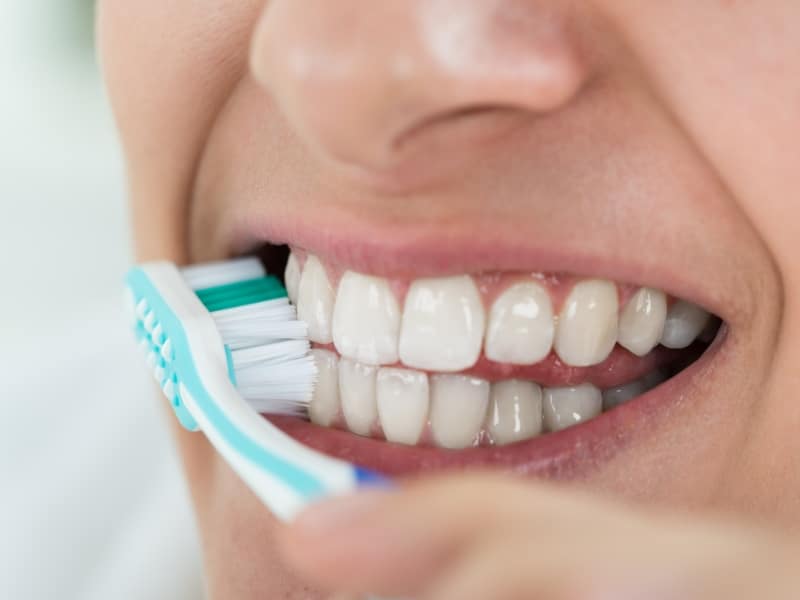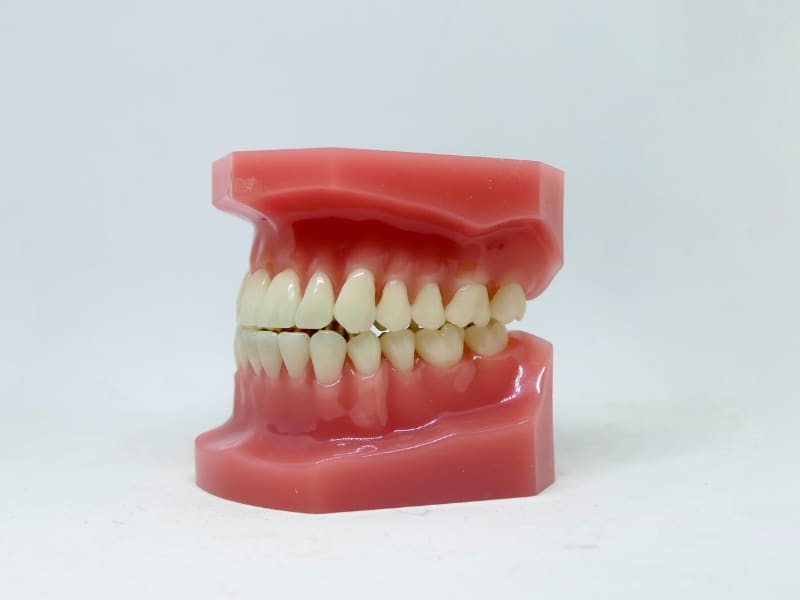Gum recession is a common dental issue where the gums pull back from the teeth, exposing more of the tooth or its root. While it might not seem a big concern initially, gum recession can lead to sensitive teeth, cavities, and even tooth loss if not addressed early. Fortunately, there are effective ways to prevent gum recession and keep your gums healthy. This article will explore the best methods for preventing gum recession and the factors that contribute to this condition.
Why does gum recession happen?
Gum recession can occur due to several factors. When gums recede, the protective layer around your teeth weakens, exposing the tooth’s root. This can cause discomfort and an increased risk of tooth decay. The causes of gum recession are often preventable if addressed early. Here are the main factors:
- Poor oral hygiene: Inadequate brushing and flossing can cause plaque buildup, which leads to gum disease and eventual gum recession.
- Aggressive brushing: Brushing too aggressively or using a toothbrush with hard bristles can damage the gums, leading to recession.
- Genetics: Certain individuals are genetically inclined to experience gum recession, regardless of their oral hygiene habits.
- Smoking or tobacco use: Smoking is known to reduce blood flow to the gums, which weakens them and can lead to recession.
- Hormonal changes: Fluctuations in hormones, especially during pregnancy or menopause, can affect the gums and make them more susceptible to recession.
By understanding these causes, you can take steps to avoid or minimise the risk of gum recession.
Which habits can cause gum recession?
Certain daily habits can accelerate gum recession if not appropriately managed. If you notice any of these habits in your routine, consider adjusting them to protect your gums:
| Habit | Description | Prevention Tips |
| Hard-bristled toothbrush | Abrasive on gums, causing wear and tear | Use a soft-bristled toothbrush |
| Poor diet | High in sugar and acidic foods, causing plaque | Maintain a balanced, nutritious diet |
| Not flossing regularly | Plaque buildup between teeth and gums | Floss daily to prevent plaque formation |
| Using teeth as tools | Biting nails or opening packages with teeth | Avoid using teeth for non-dental tasks |
Changing these habits will help maintain your gum health and prevent recession from progressing.
What are the early signs of gum recession to watch for?
Detecting gum recession early is crucial for preventing further damage. While the recession itself is often gradual, there are clear signs that can help you identify it before it becomes severe:
- Tooth sensitivity: If your teeth are more sensitive to hot, cold, or sweet foods and drinks, it might be due to exposed roots from gum recession.
- Longer-looking teeth: If your teeth appear longer, it’s often because the gums have receded, exposing more of the tooth surface.
- Visible gaps between gums and teeth: You may notice spaces or a lack of gum coverage around the base of your teeth.
- Swollen gums: One of the reasons for bleeding gums while brushing or flossing could be gum disease, which may eventually lead to gum recession.
- Pain or discomfort around the gum line: Receding gums can cause tenderness or pain around the affected areas.
Recognising these signs early gives you the best chance to prevent gum recession from progressing further.
When should you start preventing gum recession?
It’s never too early to start preventing gum recession. In fact, taking preventive steps in your youth can significantly reduce your risk as you age. Here’s when to start:
- In childhood, teach kids proper brushing and flossing techniques to avoid plaque buildup and maintain gum health.
- Adolescence: As the body undergoes changes, including hormonal fluctuations, it’s essential to maintain good oral hygiene.
- In your 20s and 30s: By now, individuals should be vigilant about gum health, especially if they have a family history of gum disease or tooth sensitivity.
- Middle age: Even if you’ve neglected your gums in the past, it’s not too late to start preventative measures.
- Early adulthood: Ensure well-established oral habits to avoid risk factors like aggressive brushing or smoking.

Starting prevention early can go a long way in maintaining gum health throughout your life.
Can your lifestyle choices impact gum health?
Your physical and emotional lifestyle choices can significantly affect your gum health. Here’s how:
- Tobacco use: Smoking or chewing tobacco restricts blood flow to your gums, impairing their ability to heal and stay healthy.
- Alcohol consumption: Excessive alcohol can dry out your mouth, leading to gum disease and recession due to reduced saliva production.
- Stress: High stress levels can lead to bruxism and neglect of proper oral care, which can contribute to gum recession.
- Poor hydration: Dehydration can lead to a dry mouth, which promotes the growth of bacteria and plaque on your gums.
- Lack of exercise: Regular physical activity improves circulation, which helps maintain healthy gums and teeth.
Living a balanced and healthy lifestyle is essential for your gums; small changes can make a big difference.
How does oral hygiene impact your gum health?
Oral hygiene is the cornerstone of gum health. Neglecting to brush or floss can quickly lead to plaque buildup, which hardens into tartar and irritates the gums. Here’s how you can improve your oral hygiene to prevent gum recession:
| Practice | Action | Benefit |
| Brush twice daily | Use fluoride toothpaste | Removes plaque and prevents disease |
| Floss daily | Clean between teeth | Reaches areas a toothbrush can’t |
| Use mouthwash | Antiseptic rinse | Kills bacteria and reduces recession |
| Choose the right brush | Soft-bristle toothbrush | Protects gums from damage |
| Visit dentist | Regular check-ups | Detects early signs of gum issues |
By prioritising your oral hygiene, you significantly reduce the chances of gum recession. Exploring effective solutions to prevent gum recession is key to maintaining oral health.
Who is at risk for gum recession?
Some people are more prone to gum recession than others. Here’s who may be at a higher risk:
- People with a family history of gum disease: Genetics can affect your susceptibility to gum recession and gum disease.
- Smokers: Tobacco use is a significant risk factor, as it restricts blood flow to the gums, making them more vulnerable.
- For those with poor oral hygiene, not brushing and flossing regularly increases their chances of gum disease and recession.
- Individuals with misaligned teeth or bite issues: Crooked teeth can make it difficult to clean all areas properly, leading to plaque buildup and gum problems.
- Older adults: Gum recession becomes more common as you age due to years of wear on the gums and teeth.
If any of these apply, you must stay vigilant about your gum health and take preventive measures.
Healthy gums, healthy smile
Preventing gum recession is all about maintaining good habits and making informed lifestyle choices. By addressing the risk factors and incorporating preventative measures into your daily routine, you can keep your gums healthy and avoid the discomfort of gum recession. Regular dental visits and good oral hygiene are key to preserving your smile for years.
Looking to explore better ways to care for your gums? Get in touch with Marsfield Dental Care for advice.

